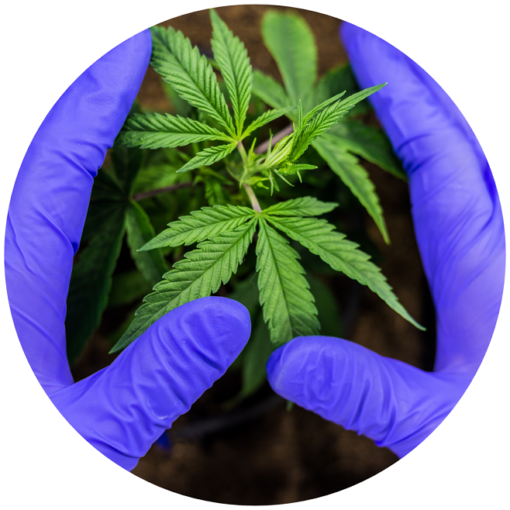Home › What We Do › Mental Health and Substance Use Health
Intersecting paths
Mental Health and Substance Use Health
Mental health and substance use health are often intertwined, each impacting the other. We look for solutions, guided by experiential knowledge past and present.
The strong link between mental health and substance use health
- Substance use health occurs on a spectrum — no use, beneficial use, lower-risk use, problems occurring, and substance use disorder (SUD) — and is significantly influenced by one’s mental health (CAPSA).
- 16% of people with mood or anxiety disorders experience an SUD, and 24% of people with an SUD experience a mood or anxiety disorder (Khan, 2017).
- COVID-19 has amplified the strong link between mental health and substance use health.
- There’s an urgent need to better understand the complex relationship between cannabis use and mental health.
- A national opioid overdose and toxicity crisis is disproportionately impacting vulnerable populations.
Yet . . .
- Mental health and substance use health (MHSUH) service providers work across multiple programs and sectors with different funding streams, reporting mechanisms, and limited information sharing.
- Mental health and substance use health are often treated separately, which can create barriers in access to holistic care.
- Knowledge gaps in the relationship between cannabis and mental health persist, particularly for equity-deserving populations.
- Inequitable access and inconsistent approaches to MHSUH care occur across the country.
- Even with a massive shift to virtual services during the pandemic, the MHSUH workforce is not receiving sufficient support to meet growing population needs.
- Stigma toward people with MHSUH concerns remains a major barrier to help seeking and the quality of care.
In short, people deserve timely access to quality, seamless, stigma-free, person-centred, evidence informed, equitable, and inclusive MHSUH services — and the MHSUH workforce should be well equipped to meet their health needs.

What can we do?
Understand the relationship between mental health and cannabis use
After Canada legalized cannabis for non-medical use in 2018, the federal government allocated $10 million over five years to help us assess its impact on mental health. This work involved an environmental scan and scoping review to synthesize existing research gaps and identify opportunities for future research, along with 40 community-based and academic research projects to narrow those gaps and strengthen the evidence base.
Forums with priority populations were also convened to explore their experiences with cannabis and mental health and determine priorities for future research:
Canada is just the second country to legalize cannabis for non-medical use. This decision has created an unprecedented opportunity for research into the effects of cannabis use on many aspects of health, including mental health. In recognition of that fact, the 2018 federal budget granted the Mental Health Commission of Canada (MHCC) $10 million over five years to support research on the relationships between cannabis use and mental health.
After Health Canada provided funding to the Mental Health Commission of Canada (MHCC) in 2018 to explore the relationship between cannabis and mental health, one of the first steps was to conduct an environmental scan and scoping review.
Accompanying webinar.
Cannabis and mental health dialogue series: Insights into Veteran and Veteran Family experiences with cannabis and mental health.
Accompanying webinar.

As well, we supported the development of cannabis and mental health learning resources, including a free virtual course (created by youth for youth) and mentor guide, featured in this webinar.
Learn about what we did and what we learned.
Address stigma toward people who use opioids
From 2017 to 2019, we studied how stigma by first responders and health-care providers toward people who use opioids affects the services and care they receive. Findings from this qualitative study are available in the full report or the summary.
From this research, the Opening Minds Provider Attitudes Toward Opioid Use Scale (OM-PATOS) was developed, a tool we used to evaluate the ability of four stigma reduction programs to reduce opioid and substance use-related stigma among health-care and other direct service providers. The findings are useful for helping health-care provider, first responder, and other organizations create or improve stigma reduction programs and services. Read our evaluation reports.
Our educational video highlights Jes’s and Melinda’s efforts to reduce stigma toward people who use opioids and other substances and improve their quality of care.
The video’s discussion guide includes learning objectives and outcomes, discussion points, and additional resources.
Build healthy cultures of care
Trauma and Resiliency Informed Practice (TRIP) is a program developed by a British Columbia health authority known as Fraser Health (FH) in 2017, which is supported and evaluated in partnership with the MHCC. Designed for people who work in the health, social, and justice systems, TRIP uses innovative, evidence-based education to increase workers’ wellness. It also gives them tools to appraise their own responses to distress and employ compassion-led strategies to support personal resiliency. The program reduces stigmatizing behaviours by enhancing knowledge and skills related to trauma awareness, self-compassion, and compassion satisfaction.
FH and the MHCC are working to pilot and evaluate workshop education, facilitator development training, and implementation under the TRIP program in organizations. The goal is to embed TRIP throughout service cultures nationally where high levels of distress are adversely affecting the workforce.
Strengthen the MHSUH workforce
The MHSUH workforce is a critically important sector, yet due to long-standing data, regulatory, and funding challenges we know very little about it.
This workforce urgently requires attention from policy makers to meet emerging needs that pre-date (but were amplified during) the pandemic.
Our multi-year research collaboration
A collaboration with Athabasca University and the Canadian Health Workforce Network is advancing knowledge in this area through three groundbreaking studies, in collaboration with a broad range of MHSUH service provider organizations and stakeholders, including people with lived and living experience.
Support the integration of MHSUH services
In 2021, we began a collaboration with the Canadian Centre on Substance Use and Addiction to determine and contribute to the current evidence on integrated MHSUH service delivery.
This includes a systematic review of academic literature, a grey-literature review of implementation and operational guidelines, and a research study highlighting the perspectives of people with lived and living experience.